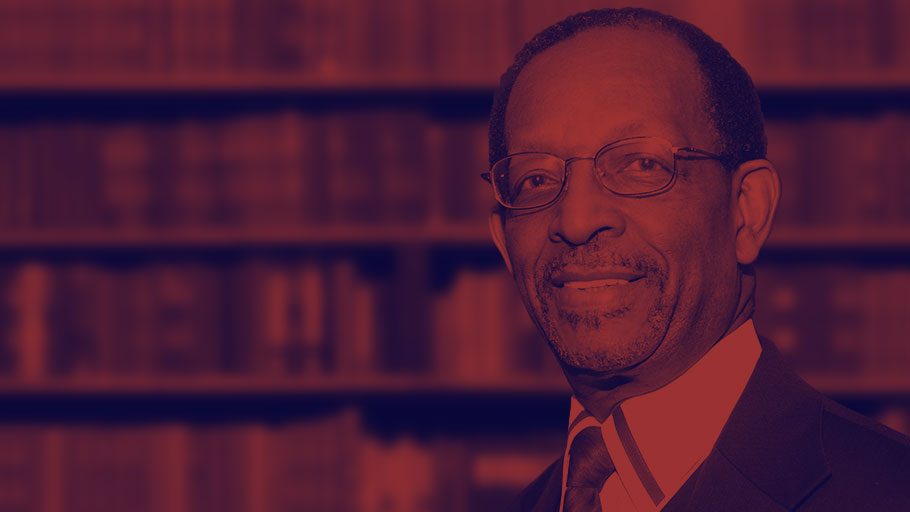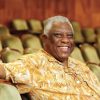August is a momentous month in the history of the African world. August 17th marks the birthday of the Honorable Marcus Mosiah Garvey, arguably the greatest mass organizer in the history of the Pan African movement. August 14th is the anniversary of Bwa Kayiman, the gathering in northern Haiti convened by the spiritual leader Boukman in 1791 which sparked the revolution that led to the creation of the first Black Republic in the world. More than any other Pan Africanist leader, it was Marcus Garvey who relentlessly preached the value of African self-determination and self-reliance through the control and development of the vast human and material resources in Africa and the African world. And, more than any other event, it was the Haitian Revolution that gave people of African descent everywhere their dignity back under the crushing weight of the holocaust of enslavement, colonial exploitation and the propagation of the myth of white supremacy! Hence, the commemoration of the birthday of Marcus Garvey and the celebration of Bwa Kayiman should have great significance in the African world.
Against the backdrop of these important occasions, invoking the spirit of Marcus Garvey, I particularly want to focus on the “unfinished Haitian Revolution”. As those who follow my work and writings are aware, I have a passionate devotion to Haiti. My love for Haiti is not sentimental. As noted above, the Haitian Revolution was an inspiration, a bright beacon of hope and possibilities at the nadir of our history as a race of people. Haiti shattered the myth of white supremacy which came to be the rationale for the enslavement, economic exploitation and political domination of African people. Therefore, as I have proclaimed so many times, people of African descent everywhere owe a special debt to the Pan African revolutionaries (Boukman was from Jamaica, Christophe from Grenada, many from Cuba and other Caribbean islands) who transformed plantations of servitude into command posts for a war of independence.
Unfortunately, the first Black Republic paid a heavy price for achieving what “inferior beings” were not supposed to accomplish. Slave traders and plantation owners in the Southern U.S. and the European colonial imposters of the Caribbean, Central and South America could not afford to allow the idea to spread that Africans/Blacks could be self-governing and self-sufficient. Though they often engaged in fierce rivalries/competitions for the bounty of the “new World” among themselves, the profiteers of America and Europe concurred and conspired to isolate, denigrate and deter the development of the first Black Republic. Haiti is not the “poorest nation in the western hemisphere” by accident. For generations external forces, including the United States, have colluded with a parasitical elite in Haiti to “impoverish” this proud nation and its people.
Given Haiti´s contribution to people of African descent, it is my contention that it is the collective responsibility of Black people from around the world to play a leading role in the defense and development of the first Black Republic. As a Pan Africanist, this has been my mission and message for the past 16 years. That mission has become more urgent in the wake of one of the most disastrous earthquakes ever to decimate a Caribbean nation. This is not to discount or discourage contributions and
assistance from people of other races/ethnicities. However, I believe there is a special burden of responsibility/duty on the shoulders of the sons and daughters of Africa to rescue, reconstruct, resurrect and restore Haiti to her rightful place as the first Black Republic in the world. And, African Americans and other people of African descent in the U.S. should be in the forefront of mobilizing humanitarian and developmental assistance to rebuild this earthquake ravished nation, particularly now that the cameras are gone and the world´s attention span has waned.
While humanitarian assistance is essential, however, it is important to stress the age old adage that it´s wonderful to feed the hungry fish, but it is far better to teach them how to fish. Ultimately Haiti must move from being almost totally dependent on foreign aid and humanitarian assistance to building a vibrant economy based on its own assets and resources. In my judgment, Haiti´s greatest assets are a highly resilient, energetic and resourceful people and an extraordinarily rich history and culture. Though there are ample areas for investment in other sectors, cultural-historical tourism should be a powerful attraction for people of African descent. Haiti´s history and culture should be the foundation of a great awakening, revival, a “renaissance” which captures the imagination of people of African descent and inspires multitudes to visit the first Black Republic! Cultural-historical tourism should be one of the most dynamic engines of Haiti´s economic/business development. Therefore, HSP has vigorously promoted the idea that African Americans and other people of African descent should partner with Haitian Americans and Haitians to implant a “Black Footprint” in the area of cultural-historical tourism, inclusive of all the related, interconnected enterprises.
In this regard, we believe that the Citadel, the magnificent mountaintop fortress built by King Henri Christophe to deter further aggression by the French and other foreigners, is one of the great symbols of freedom and self-determination in the world. Conceived by Black minds and built by Black hands, the Citadel has been declared one of the great wonders of the world by UNESCO! HSP has launched the Model City Initiative to transform the lovely town of Milot (located at the base of the mountain where the Citadel stands) into a Mecca for cultural-historical tourism. Because of the significance of Haiti´s history and culture to Black people, we believe every person of African descent should visit the Citadel at least once in a lifetime. There is no more meaningful way to interact with the Haitian people and feel the pulse and spirit of the Revolution than to visit the Citadel. Moreover, as Haiti rises from the ashes of the earthquake, the Citadel is destined to be the number one tourist attraction in the nation. Royal Caribbean Cruise Line, which brings hundreds of thousands of passengers to its nearby private destination at Labadee, is prepared to begin tours to the Citadel that would send thousands of its patrons through Milot once the proper infrastructure and chain of accommodations are in place. Similarly, tourists from Europe vacationing in the neighboring Dominican Republic are eager to cross the border to visit the fabled Citadel.
What is needed for the Citadel to become the premier destination for cultural-historical tourism in Haiti is investment to make Milot, the gateway to this incredible monument, a model city complete with a sound infrastructure of streets/roads, good schools/educational institutions, refurbished housing stock, quality sanitation and health care facilities (Milot already has one of the best hospitals in Haiti), efficient transportation and an attractive array of shops/stores, restaurants and hotels. As HSP prepares to lead its annual Pilgrimage Delegation to Haiti to visit the Citadel (in support of the Model City Initiative), we will take a number of potential African American investors whom we hope will grasp the vision of the Citadel as a “must see” monument for people of African descent and Milot as a model city to receive tourists attracted by Haiti´s history and culture.
HSP has planted its flag in Milot and the Citadel as areas with vast potential for business/economic development. However, there are areas with opportunity for investment throughout Haiti in a variety of sectors. And, as is the case with Milot and the Citadel, sooner or later investors will see the light and seize the opportunity to create productive enterprises. As noted earlier, Haiti needs investors from wherever it can get them. The question is will people of African descent step up to the plate, or will we be stranded on the sidelines, watching and waiting while others have the vision, conviction, confidence and courage to invest in and profit from the rescue, reconstruction and resurrection of a Black nation.While not condemning others for joining in the essential effort to rebuild Haiti, the spirit of Marcus Garvey dictates that people of African descent be in the forefront of developing their own communities and nations. Therefore, let us resolve that, as people of African descent, we will repay our debt to Haiti by ensuring that there is a Black footprint driving an economic renaissance in the world´s first Black Republic!
Dr. Ron Daniels is President of the Institute of the Black World 21st Century and Distinguished Lecturer at York College City University of New York. His articles and essays also appear on the IBW website www.ibw21.org and www.northstarnews.com . To send a message, arrange media interviews or speaking engagements, Dr. Daniels can be reached via email at info@ibw21.org .















